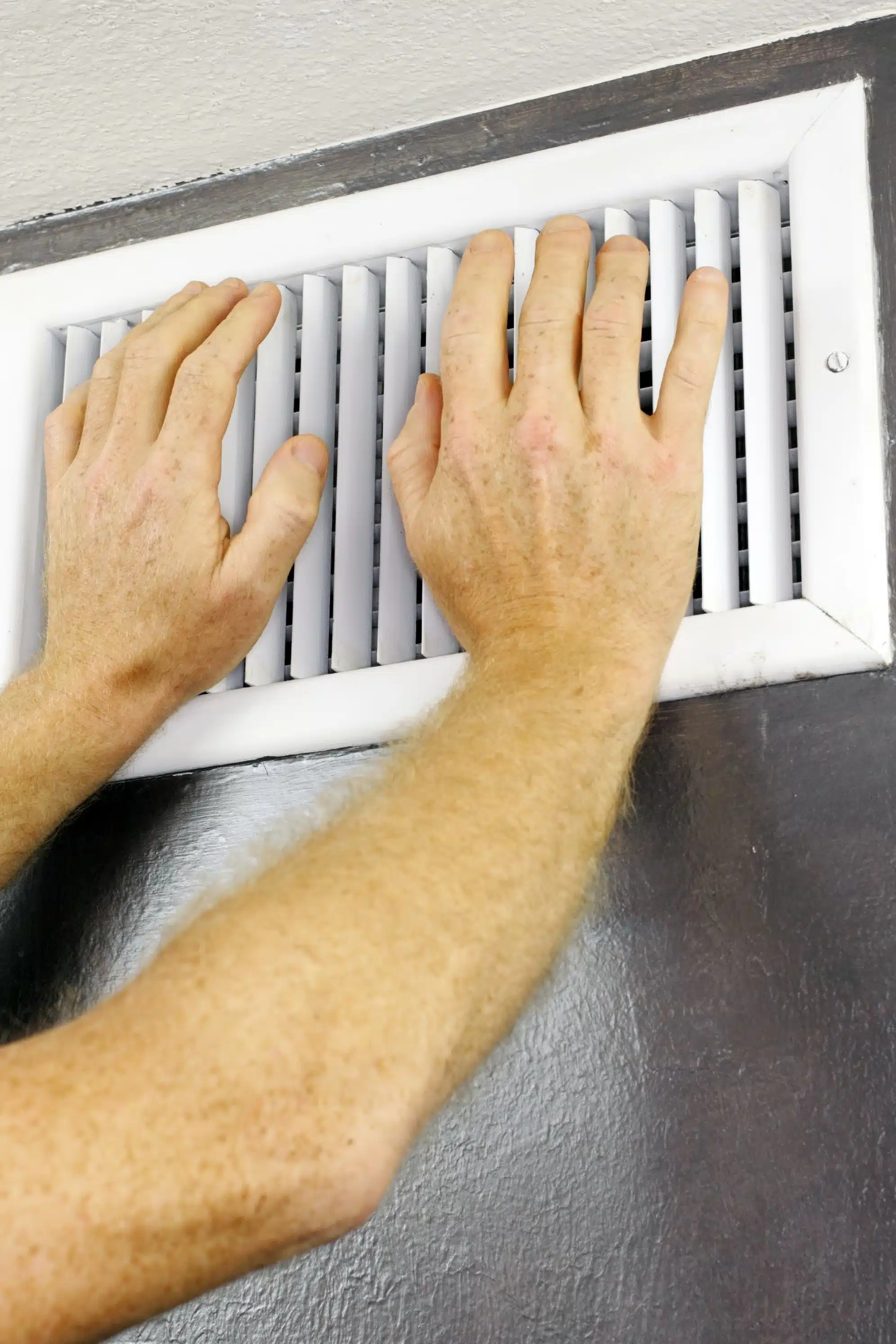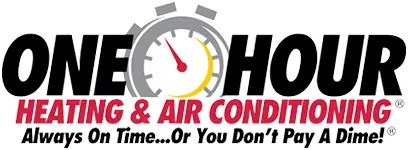As summer approaches in Lancaster, PA, and surrounding areas like Harrisburg, PA, ensuring your air conditioning system is in top shape becomes crucial. A key component of this system is the AC condenser unit, which plays a vital role in cooling your home efficiently. However, when this unit gets blocked, it can lead to a host of problems, including inefficient cooling and increased energy consumption. Understanding the signs of a blocked AC condenser unit can help you address issues before they escalate into costly repairs.
One of the first signs that your AC condenser unit might be blocked is the air coming from your vents feels warmer than usual. This indicates that the unit isn’t able to effectively expel heat from your home. Additionally, you might notice that your air conditioning system is cycling on and off more frequently. This frequent cycling can put extra strain on your system, leading to potential breakdowns and decreased longevity of your equipment.
Another clear indicator of a blockage is strange noises coming from the AC condenser unit. These sounds could be anything from rattling to buzzing, suggesting that debris or mechanical issues are impeding the unit’s functionality. Moreover, a visual inspection might reveal debris like leaves, dirt, or even grass clippings that have accumulated around the condenser unit, obstructing airflow and reducing its efficiency.
Recognizing these warning signs early is essential for maintaining the performance of your HVAC system. By keeping an eye out for warm air output, frequent cycling, unusual noises, and visible debris, you can ensure that your AC condenser unit remains unblocked and functional. This proactive approach not only helps in avoiding disruptions during peak summer days but also contributes to the overall energy efficiency of your home in Lancaster and Harrisburg, ensuring comfort all season long.
Understanding the Role of the AC Condenser Unit
Understanding the role of the AC condenser unit is crucial for maintaining a comfortable environment in your home, especially in areas like Lancaster, PA, and Harrisburg, PA. This component is responsible for expelling the heat absorbed from your indoor air outside, playing a pivotal role in the cooling process. When the AC condenser unit functions optimally, it ensures that your home remains cool and comfortable during the hot summer months.
However, the efficiency of the AC condenser unit can be compromised if it becomes blocked or congested with debris. Such blockages hinder the unit’s ability to effectively release heat, leading to an overworked system. This not only affects the cooling efficiency but also increases energy consumption as the system struggles to maintain the desired indoor temperature.
Regular maintenance is key to preventing blockages and ensuring the longevity of your AC condenser unit. Homeowners should ensure that the area around the unit is clear of leaves, dirt, and other debris that could obstruct airflow. Additionally, scheduling professional inspections can help identify potential issues early, before they lead to significant damage or inefficiency.
By understanding and maintaining the AC condenser unit properly, residents of Lancaster and Harrisburg can enjoy a more efficient cooling system. This not only provides comfort during the warm seasons but also helps in managing energy costs effectively. Regular attention to this crucial component of your HVAC system ensures it operates at peak efficiency, providing reliable cooling when you need it most.

Warm Air from Vents: A Key Indicator of Blockage
When your AC condenser unit is blocked, one of the most immediate signs you might notice is warm air blowing from the vents. This is particularly concerning during the warm months in Lancaster, PA, and surrounding areas. If the air feels warmer than usual, it’s a strong indicator that the AC condenser unit isn’t expelling heat as efficiently as it should. This inefficiency can drastically reduce the comfort level in your home, making it uncomfortably warm despite the AC running.
The presence of warm air from your vents suggests that the heat exchange process is being hindered. Normally, the AC condenser unit releases the absorbed heat outside, but a blockage can trap this heat within the system. This leads to the AC working harder to cool your home, which can increase wear and tear on the system. Over time, this extra strain can lead to more frequent repairs and reduced lifespan of your HVAC equipment.
Residents of Harrisburg, PA, and nearby areas should be particularly vigilant about this issue. Warm air output not only affects your comfort but also your energy bills. An overworking Air Conditioning system consumes more energy, which can lead to higher utility bills. Monitoring the air temperature from your vents can provide a quick check on whether your AC system is functioning properly.
To address this issue, it’s advisable to inspect your AC condenser unit for any visible blockages such as leaves, dirt, or debris. Keeping the area around your AC condenser unit clear is crucial for maintaining its efficiency. If the problem persists, contacting a professional HVAC service can ensure that any deeper issues are resolved, restoring the efficiency of your AC system and ensuring cool air circulates in your home once again.
Frequent Cycling: What It Means for Your AC Condenser Unit
Frequent cycling of your AC condenser unit can be a clear sign that there may be a blockage affecting its performance. This term refers to the AC system turning on and off more often than usual, which is not only annoying but can also be harmful to the system. For residents in Lancaster, PA, and surrounding areas, frequent cycling should be addressed promptly to avoid further complications. This rapid turning on and off can strain the AC system, leading to premature wear and tear.
When an AC condenser unit is blocked, it struggles to expel heat effectively, causing the internal temperature to rise quickly. Once it hits a certain threshold, the system shuts down, only to restart when the temperature rises again. This constant struggle not only stresses the system but can also lead to higher energy usage. Homeowners in Harrisburg, PA, might notice an increase in their energy bills if the issue is not resolved quickly.
To understand why frequent cycling occurs, it’s important to consider what might be causing the blockage. Common culprits include leaves, dirt, or even small animals making nests near or in the unit. These blockages impede airflow, crucial for the condenser to release heat. Without proper airflow, the unit cannot perform efficiently, leading to overheating and frequent cycling.
Addressing frequent cycling involves inspecting the AC condenser unit for any visible blockages and ensuring the area around it is clear. If simple cleaning doesn’t resolve the issue, it might be time to call a professional. They can provide a thorough inspection and perform necessary maintenance, ensuring that your AC system returns to its optimal operating condition. This proactive approach not only extends the lifespan of your AC condenser unit but also enhances the comfort of your home during the warm seasons.
Strange Noises: Decoding What Your AC Condenser Unit Is Telling You
When your AC condenser unit starts making strange noises, it’s often a signal that something is amiss. These sounds can range from a mild buzzing to a loud rattling, each indicating different potential issues. For homeowners in Lancaster, PA, recognizing these noises early can save a lot of trouble down the line. It’s crucial to understand what your AC condenser unit is trying to tell you through these sounds.
A buzzing noise might suggest electrical issues within the unit, such as loose wiring or malfunctioning components. On the other hand, a rattling sound often points to something more mechanical, like loose parts or debris trapped in the system. Each noise your AC condenser unit makes is a clue towards identifying the root cause of the blockage or malfunction. Addressing these noises promptly ensures the system remains efficient and effective.
Ignoring these warning sounds can lead to more significant problems, affecting the overall performance of your HVAC system. Residents of Harrisburg, PA, should be particularly aware of how prolonged exposure to such issues can lead to costly repairs or even complete system failures. The strange noises are not just a nuisance; they are an alert to potential blockages that impede your unit’s ability to function correctly.
To properly address these noises, a thorough inspection of the AC condenser unit is advisable. Removing any visible debris and checking for loose components can sometimes quickly solve the issue. However, if the problem persists, professional help from an HVAC technician might be necessary. They can provide a more in-depth analysis and resolve any issues, ensuring your unit operates smoothly and quietly, maintaining comfort in your home throughout the seasons.
Visible Debris Around the AC Condenser Unit: Causes and Consequences
Visible debris around your AC condenser unit isn’t just an eyesore; it can significantly impact the unit’s performance. For homeowners in Lancaster, PA, keeping the area around the AC condenser unit clear is crucial for maintaining its efficiency. Leaves, twigs, dirt, and even trash can accumulate, blocking the airflow that is vital for the unit’s heat exchange process. This obstruction can cause the system to work harder than necessary, leading to increased wear and tear.
The consequences of ignoring debris around your AC condenser unit can be severe. In Harrisburg, PA, where temperatures can soar during the summer, a blocked unit may struggle to expel heat effectively. This inefficiency forces the unit to consume more energy, which can lead to higher utility bills. Moreover, the added strain on the system can shorten the lifespan of your HVAC equipment, potentially leading to premature failures.
Regular cleaning and maintenance are essential to prevent debris-related issues. Ensuring that the area around the AC condenser unit is free from vegetation and debris not only optimizes airflow but also allows for better accessibility during inspections or repairs. Homeowners should consider creating a clear zone around the unit, ideally a few feet in all directions, to facilitate adequate air intake and heat release.
If you notice a buildup of debris around your AC condenser unit, it’s advisable to address it promptly. Simple steps like removing visible debris and trimming back plants or bushes can significantly improve the unit’s functionality. For more persistent or complicated issues, contacting a professional HVAC service is recommended. They can perform a thorough cleaning and check for any underlying issues that might be causing the blockage, ensuring your system remains efficient and effective throughout the cooling season.

The Impact of a Blocked AC Condenser Unit on Energy Bills
A blocked AC condenser unit doesn’t just compromise your comfort; it also hits where it hurts: your wallet. Residents of Lancaster, PA, and surrounding areas might notice a significant spike in their energy bills when their unit isn’t functioning optimally. This increase is due to the extra effort the system must exert to cool your home, thereby consuming more energy. When the AC condenser unit is blocked, it cannot expel heat efficiently, forcing it to run longer and work harder.
The additional strain on your AC condenser unit from trying to overcome a blockage can lead to an overworked system. For homeowners in Harrisburg, PA, this means not only higher immediate energy costs but potentially more extensive repairs or replacements down the line. An overworked system loses its efficiency and, consequently, uses more energy to achieve less cooling. This inefficiency is reflected in your monthly utility bills, which can creep up unexpectedly.
To mitigate these effects, it’s crucial to maintain the AC condenser unit regularly. Ensuring that your unit is free from debris and blockages helps maintain its efficiency and prevent unnecessary energy consumption. Regular checks and maintenance can keep the unit running smoothly, thereby ensuring that it uses energy as effectively as possible. This proactive approach not only keeps your energy bills lower but also extends the lifespan of your HVAC system.
For those unsure about the state of their AC condenser unit, consider consulting a professional HVAC service. A thorough inspection can uncover any inefficiencies and provide solutions that restore your unit to optimal function. Addressing issues promptly not only helps in reducing your energy bills but also enhances the overall performance of your cooling system. Keeping your AC condenser unit in top condition ensures that you enjoy a comfortable home environment without the worry of escalating costs.
How to Inspect Your AC Condenser Unit for Blockage
Inspecting your AC condenser unit for blockages is a crucial step in maintaining an efficient cooling system, especially in areas like Lancaster, PA, where summer heat can be intense. A visual inspection is the first and easiest method to identify any potential blockages that could impair your unit’s performance. Start by examining the area around the unit; ensure that there is no debris, such as leaves, dirt, or trash, that could restrict airflow.
In addition to a visual check, it’s important to listen for any unusual sounds coming from your AC condenser unit. Noises such as rattling or buzzing can indicate that debris has gotten inside the unit or that mechanical components are not functioning properly. Such sounds often suggest that a more thorough inspection by a professional might be necessary to prevent further damage.
For residents of Harrisburg, PA, checking the condenser coils is another vital step. These coils should be clean and free of any obstructions to efficiently release heat. If you notice any buildup of dirt or grime on the coils, it could be a sign that your unit is working harder than it needs to, which can reduce efficiency and increase energy consumption.
Lastly, ensure that the fan in your AC condenser unit is functioning correctly. The fan plays a key role in dispersing heat, and any issues with its operation can lead to significant performance problems. If the fan blades are obstructed or damaged, they won’t be able to turn properly, which could cause your unit to overheat. If you’re unsure about the condition of your fan or other components, contacting a qualified HVAC technician for a detailed inspection and maintenance can help keep your system running smoothly and efficiently.
Preventive Measures to Keep Your AC Condenser Unit Clear
Preventive measures are essential to ensure the longevity and efficiency of your AC condenser unit, particularly in regions like Lancaster, PA, where the summer heat demands a lot from your cooling systems. By adopting a proactive approach, you can avoid common blockages that impair the unit’s performance. Regularly cleaning the unit’s external components is a fundamental step; removing dirt, leaves, and other debris will enhance airflow and prevent overheating.
Scheduling annual maintenance with a professional HVAC technician is another crucial strategy. These experts can perform a comprehensive check-up of your AC condenser unit, addressing issues that may not be immediately apparent to the untrained eye. They ensure that all mechanical parts are in good working condition and that the system is optimized for peak performance, which is particularly vital for residents of Harrisburg, PA, facing humid summers.
Another effective preventive measure is to check the placement of your AC condenser unit. Ensure it’s situated in a location where it’s not likely to accumulate leaves and debris. Additionally, consider installing a protective cover or fencing around the unit to safeguard it from external elements. This not only helps in maintaining clean airflow but also protects the unit from physical damages that can occur from yard activities or harsh weather conditions.
Finally, be mindful of the signs that suggest your AC condenser unit might be heading towards a blockage. Early detection through regular monitoring can save you from more severe complications down the line. If you notice any decrease in performance or efficiency, it might be time to consult a professional. Keeping these preventive measures in mind will help residents of Lancaster and Harrisburg enjoy a cool and comfortable home environment throughout the demanding summer months.
Frequently Asked Questions
What are common indicators that your AC condenser unit is blocked?
Common indicators that your AC condenser unit is blocked include warm air blowing from the vents, which suggests the unit isn’t cooling efficiently. Another sign is frequent cycling, where the unit turns on and off more often than usual, indicating it’s struggling to maintain the desired temperature. You might also hear unusual noises, such as rattling or buzzing, coming from the condenser unit, signaling potential obstructions. Additionally, visible debris like leaves, dirt, or grass clippings around the condenser can block airflow and reduce its effectiveness. Identifying these signs early can help maintain the longevity and efficiency of your HVAC system.
How can debris affect the efficiency of an AC condenser unit?
Debris around an AC condenser unit can significantly hinder its efficiency by obstructing airflow and causing the system to work harder. When airflow is blocked, the unit cannot effectively release heat, leading to reduced cooling capacity and increased energy consumption. This extra strain can also lead to more frequent repairs and a shortened lifespan for the unit. Keeping the area around your AC condenser unit clear of leaves, dirt, and other debris is essential for maintaining optimal performance and energy efficiency.
What maintenance steps can prevent blocking of an AC condenser unit?
Regular maintenance is crucial to prevent blocking in your AC condenser unit and ensure it operates efficiently. Start by routinely cleaning the area around the unit, removing any leaves, dirt, or debris that could impede airflow. It’s also beneficial to check and replace the air filter every few months, as a clean filter promotes better air circulation and prevents dust build-up. Additionally, scheduling annual inspections with a professional can help catch and resolve any issues before they lead to a blockage, keeping your AC condenser unit in top condition.
How often should you inspect your AC condenser unit for blockages?
To ensure your AC condenser unit operates at peak efficiency, it’s recommended to inspect it for blockages at least twice a year. Ideally, these inspections should occur in the spring before the cooling season begins and in the fall after it ends. During these checks, look for any signs of debris or obstruction that could impair airflow and cooling performance. Regular inspections not only help maintain your unit’s efficiency but also extend its overall lifespan.
What tools are needed to clear a blocked AC condenser unit?
To clear a blocked AC condenser unit effectively, a few essential tools are needed. A soft brush or a vacuum with a brush attachment is ideal for gently removing loose debris from the fins without causing damage. For more stubborn dirt and debris, a garden hose with a moderate spray setting can be used to rinse the unit, ensuring it’s turned off first. Additionally, having a fin comb handy can help straighten any bent fins, which improves the overall efficiency of the AC condenser unit. Regular use of these tools can keep your unit running smoothly and efficiently.





